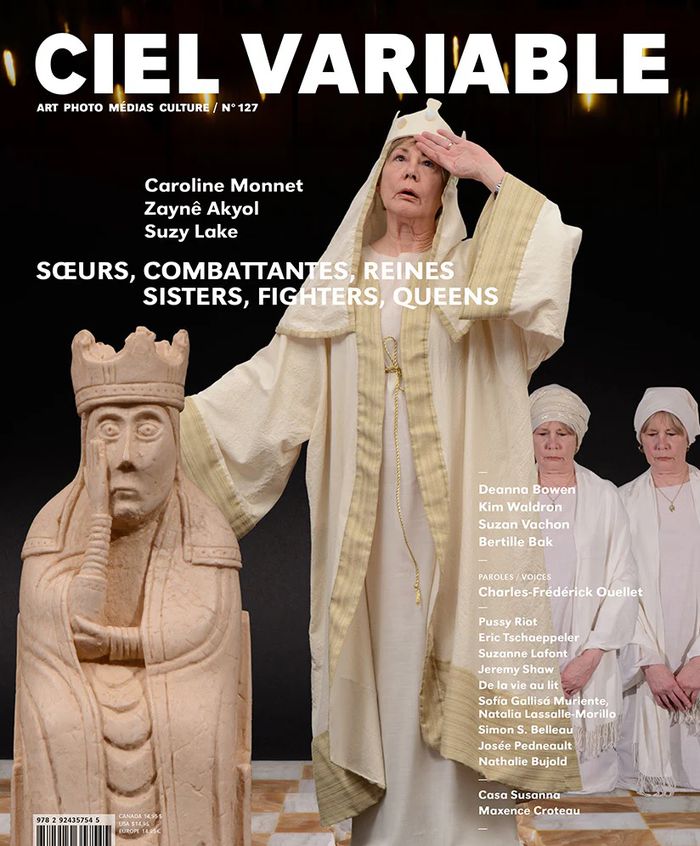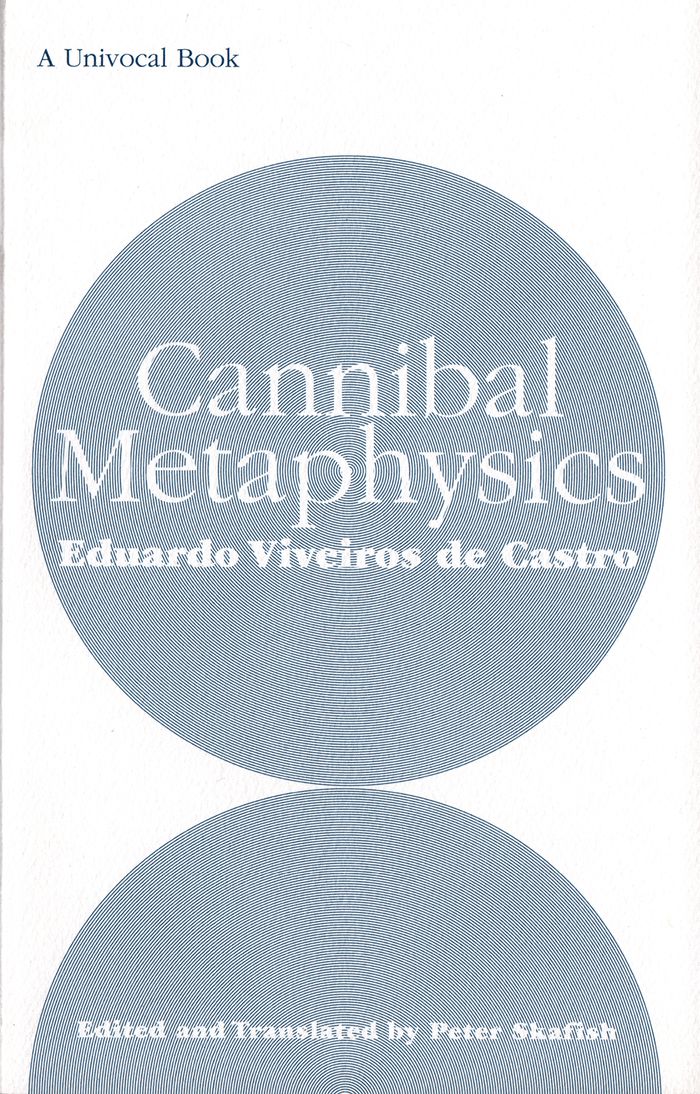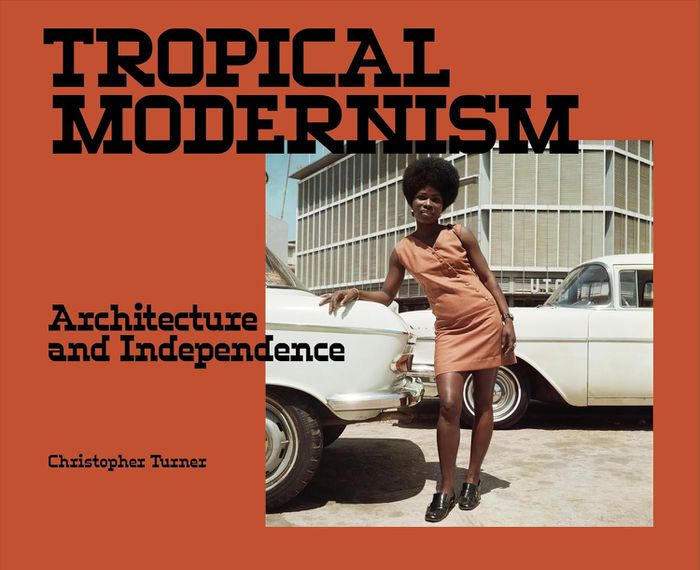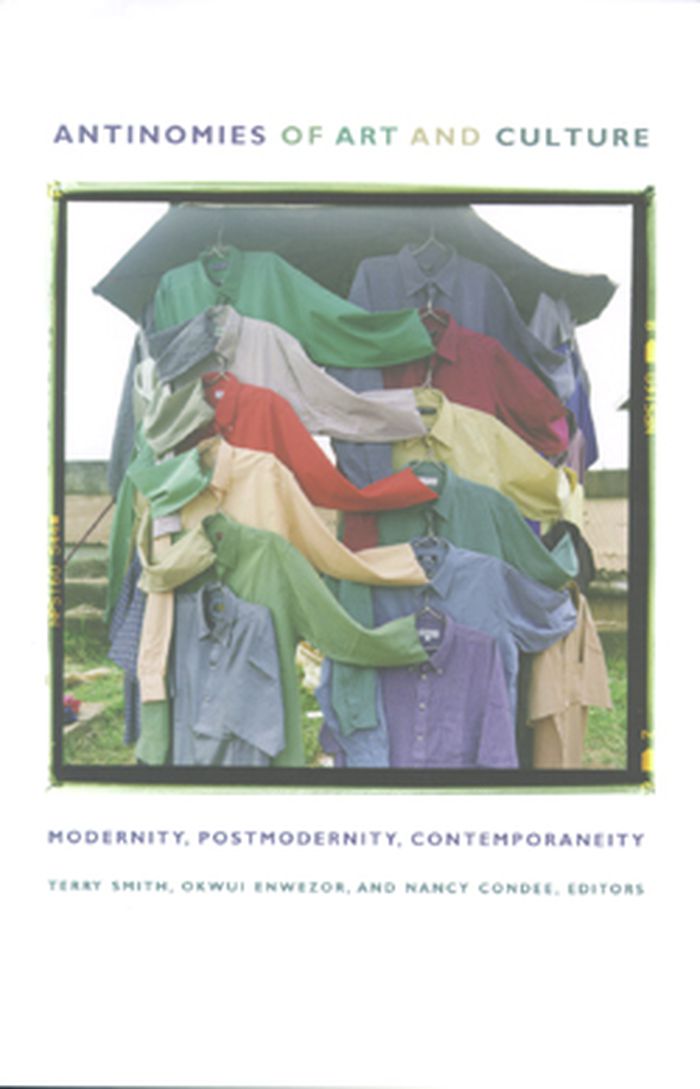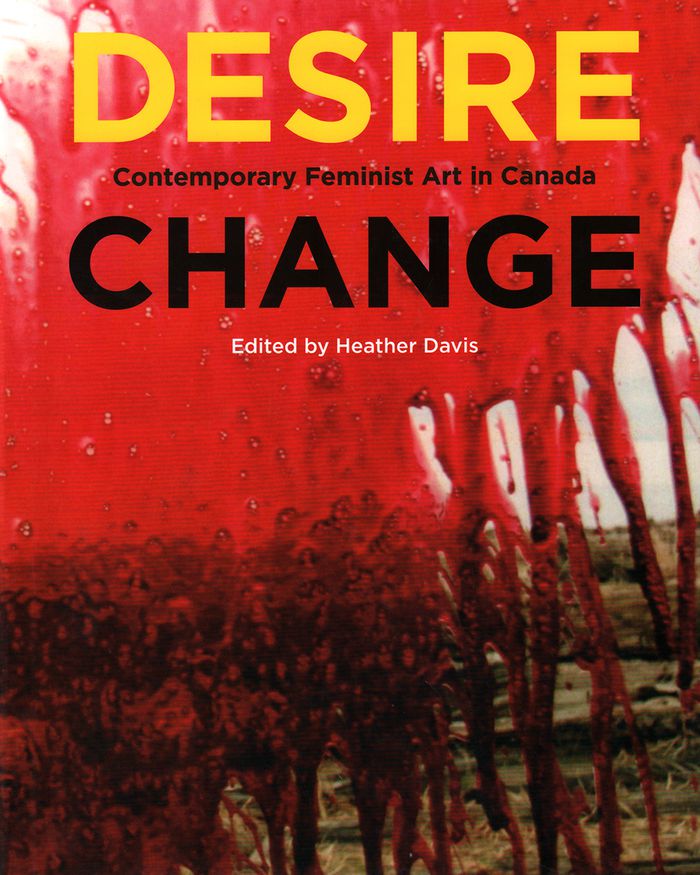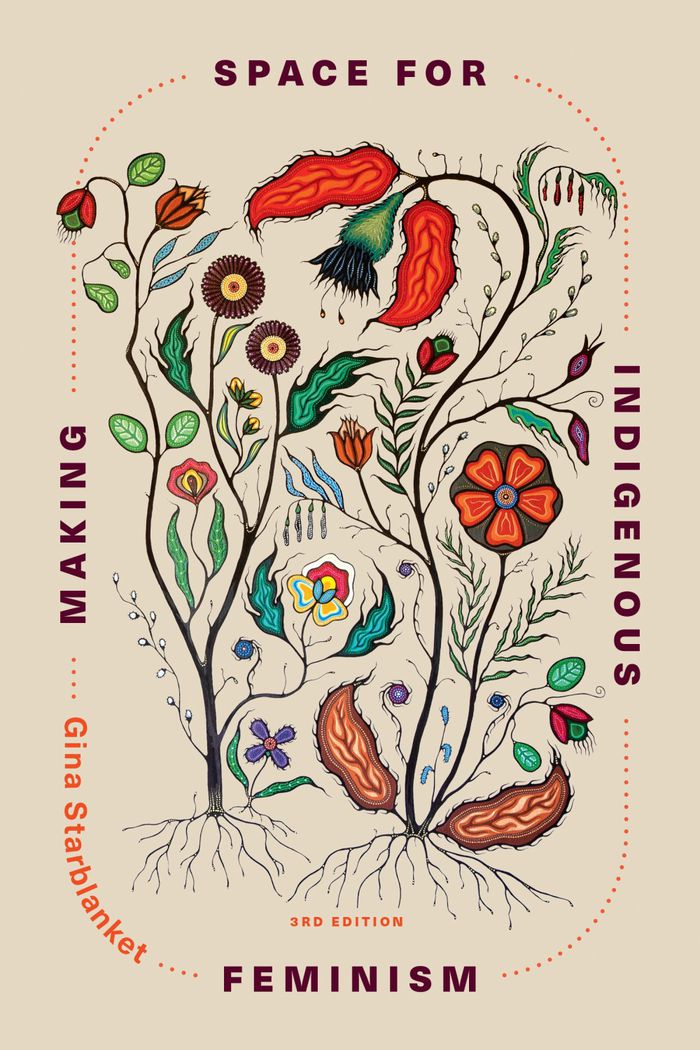$44.00
(disponible en magasin)
Résumé:
This first volume in a series examining intersections between architectural theory and practice addresses environmental crisis and spatial justice through four essays. Marc Angélil and Cary Siress trace the evolution from Technocene, Thermocene, Plantationocene, to Entropocene, Capitalocene, and Urbicene. Elke Krasny reflects on scales of care within social justice and(...)
L'écologie de l'architecure
juin 2025
New tools, Vol. 1: Architectural discourses on the Anthropocene
Actions:
Prix:
$44.00
(disponible en magasin)
Résumé:
This first volume in a series examining intersections between architectural theory and practice addresses environmental crisis and spatial justice through four essays. Marc Angélil and Cary Siress trace the evolution from Technocene, Thermocene, Plantationocene, to Entropocene, Capitalocene, and Urbicene. Elke Krasny reflects on scales of care within social justice and decolonization. Contributors explore the "Curated Diner" as a planning intervention. Finally, Space Caviar advocates for a non-extractive approach to architecture as part of a broader economic transformation. These interdisciplinary contributions aim to reshape the discourse and discuss equitable, inclusive, and intergenerational practices.
L'écologie de l'architecure
$14.95
(disponible sur commande)
Résumé:
Le dossier de ce numéro rassemble les portfolios de Caroline Monnet, Zaynê Akyol et Suzy Lake, autour de la thématique Sœurs, combattantes, reines. Plus particulièrement, leurs œuvres racontent l’apport et l’affirmation des femmes dans différents contextes : la décolonisation, la résistance au fondamentalisme islamiste et la remise en question du gamesmanship. // This(...)
CV Ciel Variable 127 : soeurs, combattantes, reines
Actions:
Prix:
$14.95
(disponible sur commande)
Résumé:
Le dossier de ce numéro rassemble les portfolios de Caroline Monnet, Zaynê Akyol et Suzy Lake, autour de la thématique Sœurs, combattantes, reines. Plus particulièrement, leurs œuvres racontent l’apport et l’affirmation des femmes dans différents contextes : la décolonisation, la résistance au fondamentalisme islamiste et la remise en question du gamesmanship. // This issue’s dossier features portfolios by Caroline Monnet, Zaynê Akyol and Suzy Lake, on the theme of Sisters, Fighters, Queens. More specifically, their works tell the story of women’s affirmation and contributions in various contexts: decolonization, resistance to Islamic fundamentalism and the reconsideration of traditional gamesmanship.
Revues
Cannibal metaphysics
$40.00
(disponible sur commande)
Résumé:
The iconoclastic Brazilian anthropologist and theoretician Eduardo Viveiros de Castro, well known in his discipline for helping initiate its “ontological turn,” offers a vision of anthropology as “the practice of the permanent decolonization of thought.” After showing that Amazonian and other Amerindian groups inhabit a radically different conceptual universe than ours—in(...)
Cannibal metaphysics
Actions:
Prix:
$40.00
(disponible sur commande)
Résumé:
The iconoclastic Brazilian anthropologist and theoretician Eduardo Viveiros de Castro, well known in his discipline for helping initiate its “ontological turn,” offers a vision of anthropology as “the practice of the permanent decolonization of thought.” After showing that Amazonian and other Amerindian groups inhabit a radically different conceptual universe than ours—in which nature and culture, human and nonhuman, subject and object are conceived in terms that reverse our own—he presents the case for anthropology as the study of such “other” metaphysical schemes, and as the corresponding critique of the concepts imposed on them by the human sciences.
Théorie/ philosophie
livres
Description:
424 pages : illustrations (chiefly color), maps (some color), plans (some color) ; 24 cm
Leuven (Belgium) : Leuven University Press, [2022]
Making home(s) in displacement : critical reflections on a spatial practice / edited by Luce Beeckmans [and three others].
Actions:
Exemplaires:
Description:
424 pages : illustrations (chiefly color), maps (some color), plans (some color) ; 24 cm
livres
Leuven (Belgium) : Leuven University Press, [2022]
$20.00
(disponible sur commande)
Résumé:
Driven by the central question "What are we learning from artists today?" the second volume of ''A series of open questions'' is informed by themes found in the work of Trinh T. Minh-ha, such as cultural hybridization and fluidity of identity, digital and migratory aesthetics, memory and landscape, decentered realities, feminist approaches to storytelling, meditations on(...)
Why are they so afraid of the lotus?: A series of open questions
Actions:
Prix:
$20.00
(disponible sur commande)
Résumé:
Driven by the central question "What are we learning from artists today?" the second volume of ''A series of open questions'' is informed by themes found in the work of Trinh T. Minh-ha, such as cultural hybridization and fluidity of identity, digital and migratory aesthetics, memory and landscape, decentered realities, feminist approaches to storytelling, meditations on death and myth, post-coloniality and decolonization, and women's work as related to cultural politics. The contributions to ''Why are they so afraid of the lotus?'' embody Trinh's own weariness around categorization and investigate the ways production can come from and be based in positions of unknowing.
Social
$63.00
(disponible en magasin)
Résumé:
Emerging in the death throes of colonial rule, the story of ''Tropical Modernism'' is one of politics and power, decolonization and defiance. Its leading proponents, British architects Jane Drew and Maxwell Fry, adapted a utopian Bauhaus-derived Modernist aesthetic to hot and humid conditions. After Independence, ''Tropical Modernism'' was championed by leaders including(...)
Tropical Modernism: Architecture and independence
Actions:
Prix:
$63.00
(disponible en magasin)
Résumé:
Emerging in the death throes of colonial rule, the story of ''Tropical Modernism'' is one of politics and power, decolonization and defiance. Its leading proponents, British architects Jane Drew and Maxwell Fry, adapted a utopian Bauhaus-derived Modernist aesthetic to hot and humid conditions. After Independence, ''Tropical Modernism'' was championed by leaders including Jawaharlal Nehru and Kwame Nkrumah as a symbol of freedom, progressiveness and internationalism in monumental projects such as Chandigarh in Punjab planned by Le Corbusier and Black Star Square in Accra designed by Victor Adegbite. Scrutinizing the colonial narratives surrounding ''Tropical Modernism'', and foregrounding the experience of African and Indian practitioners, this book reassesses an architectural style which has increasing relevance in today’s changing climate.
Modernisme
$35.95
(disponible sur commande)
Résumé:
In this landmark collection, world-renowned theorists, artists, critics, and curators explore new ways of conceiving the present and understanding art and culture in relation to it. They revisit from fresh perspectives key issues regarding modernity and postmodernity, including the relationship between art and broader social and political currents as well as important(...)
Théorie de l’art
décembre 2008, Durham, London
Antinomies of art and culture: modernity, postmodernity, contemporaneity
Actions:
Prix:
$35.95
(disponible sur commande)
Résumé:
In this landmark collection, world-renowned theorists, artists, critics, and curators explore new ways of conceiving the present and understanding art and culture in relation to it. They revisit from fresh perspectives key issues regarding modernity and postmodernity, including the relationship between art and broader social and political currents as well as important questions about temporality and change. They also reflect on whether or not broad categories and terms such as modernity, postmodernity, globalization, and decolonization are still relevant or useful. Including twenty essays and seventy-seven images, Antinomies of Art and Culture is a wide-ranging yet incisive inquiry into how to understand, describe, and represent what it is to live in the contemporary moment.
Théorie de l’art
$49.95
(disponible sur commande)
Résumé:
Correcting an absence of writing about contemporary feminist work by Canadian artists, ''Desire Change'' considers the resurgence of feminist art, thought, and practice in the past decade by examining artworks that respond to themes of diversity and desire. Contributors address the desire for change through three central frames: how feminist art has significantly(...)
Desire change: contemporary feminist art in Canada
Actions:
Prix:
$49.95
(disponible sur commande)
Résumé:
Correcting an absence of writing about contemporary feminist work by Canadian artists, ''Desire Change'' considers the resurgence of feminist art, thought, and practice in the past decade by examining artworks that respond to themes of diversity and desire. Contributors address the desire for change through three central frames: how feminist art has significantly contributed to the complex understanding of gender as it intersects with sexuality and race; the necessary critique of patriarchy and institutions as they relate to colonization within the Canadian nation-state; and the ways in which contemporary critiques are formed and expressed. The resulting collection addresses art through an activist lens to examine intersectional feminism, decolonization, and feminist institution building in a Canadian context.
Art canadien
$47.95
(disponible en magasin)
Résumé:
The question of what heritage is and how we deal with it is not a neutral one. Recent events such as the Black Lives Matter movement and the toppling of monuments have made evident how much the colonial past is inscribed in our built environment; at the same time, colonialism affects memorialization and historiography. Hence, those involved in architectural history are(...)
Théorie de l’architecture
juin 2024
Architectures of colonialism: Constructed histories, conflicting memories
Actions:
Prix:
$47.95
(disponible en magasin)
Résumé:
The question of what heritage is and how we deal with it is not a neutral one. Recent events such as the Black Lives Matter movement and the toppling of monuments have made evident how much the colonial past is inscribed in our built environment; at the same time, colonialism affects memorialization and historiography. Hence, those involved in architectural history are challenged to re-consider their positionality. Whose heritage are colonial sites? Which conflicting memories are attached to them? How are archives and material evidence reassessed to bring forward the stories of marginalized subjects? Following the call for decolonization, this volume explores historical methodologies and shows the entanglement of narratives at architectural sites, bringing together archaeology, architectural history, and heritage studies.
Théorie de l’architecture
$40.00
(disponible en magasin)
Résumé:
This book bridges generations of powerful Indigenous feminist thinking to demonstrate the movement’s cruciality for today. ''Indigenous feminists'' in the first edition fought for feminism to be considered a valid and essential intellectual and activist position. The second edition animated Indigenous feminisms through real-world applications. This third edition, curated(...)
Making space for indigenous feminism 3rd edition
Actions:
Prix:
$40.00
(disponible en magasin)
Résumé:
This book bridges generations of powerful Indigenous feminist thinking to demonstrate the movement’s cruciality for today. ''Indigenous feminists'' in the first edition fought for feminism to be considered a valid and essential intellectual and activist position. The second edition animated Indigenous feminisms through real-world applications. This third edition, curated by award-winning scholar Gina Starblanket, reflects and celebrates Indigenous feminism’s intergenerational longevity through the changing landscape of anti-colonial struggle and theory. Diverse contributors examine Indigenous feminism’s ongoing relevance to contemporary contexts and debates, including queer and Two-Spirit approaches to decolonization, gendered and sexualized violence, storytelling and narrative, land-based presence, Black and Indigenous relationalities and more. Feminism has much to offer Indigenous women, and all Indigenous Peoples, in their struggles against oppression.
Autochtone

